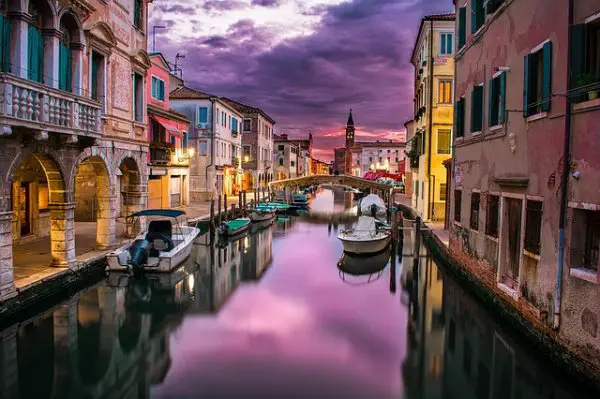Venice Canals Dry Up Following Super Blood Moon And Weeks Without Rainfall

By Amanda Froelich Truth Theory
Boats and gondolas have been beached in Venice, Italy, due to the recent rare Super Blood Moon and weeks without rainfall. As The Independent reports, water levels have dropped by more than 60 centimeters, turning the canals into muddy channels.
The Grand Canal is one of Venice’s major attractions. It remained open for the city’s water buses, which were diverted from channels of lesser size. When the city is affected by flooding, more often than not it is due to high tides — or the acqua alta which occurs in the northern Adriatic. Landmarks, including St. Mark’s Square, are then left submerged. This time, however, the canals have dried up.
This isn’t the first time the city has experienced such a staggering drop in water levels. In 2016, water levels fell by 66 centimeters. In 2008 and 1989, the water levels dropped by 90 centimeters. So, this recent development is by no means a record. The record was set in 1934. An extremely low tide caused the water levels to drop by a whopping 121 centimeters.
On Friday, rain is expected to return to the city. This should normalize water levels. However, Italian residents should prepare. According to a report published last year, Venice is at risk of chronic flooding and may be left permanently underwater by the end of a century. This could occur as a result of climate change, which is causing sea levels to rise. According to researchers, the Mediterranean Sea will rise by up to 140 centimeters before 2100. As a result, 5,500sq kilometres of coastal plains will flood.
To minimize your impact on the environment and prevent climate change from worsening, try to lower your carbon footprint. Several ways to do this follow:
1) Adopt a plant-based diet.
Beans, legumes, seaweeds, greens, fruits, vegetables, and nuts and seeds have a lower carbon footprint than animal products.
2) Instead of driving, cycle or walk places
Not only will this reduce air pollution, it will help you get healthier!
3) Reuse and Reduce
Recycling should be the last effort. Reduce your consumption of non-biodegradable products (such as plastic bags and polystyrene) as much as possible.
Little steps can go a long way. Please share this article and comment your thoughts below!
Image Credit: Pixabay
Leave Comment: